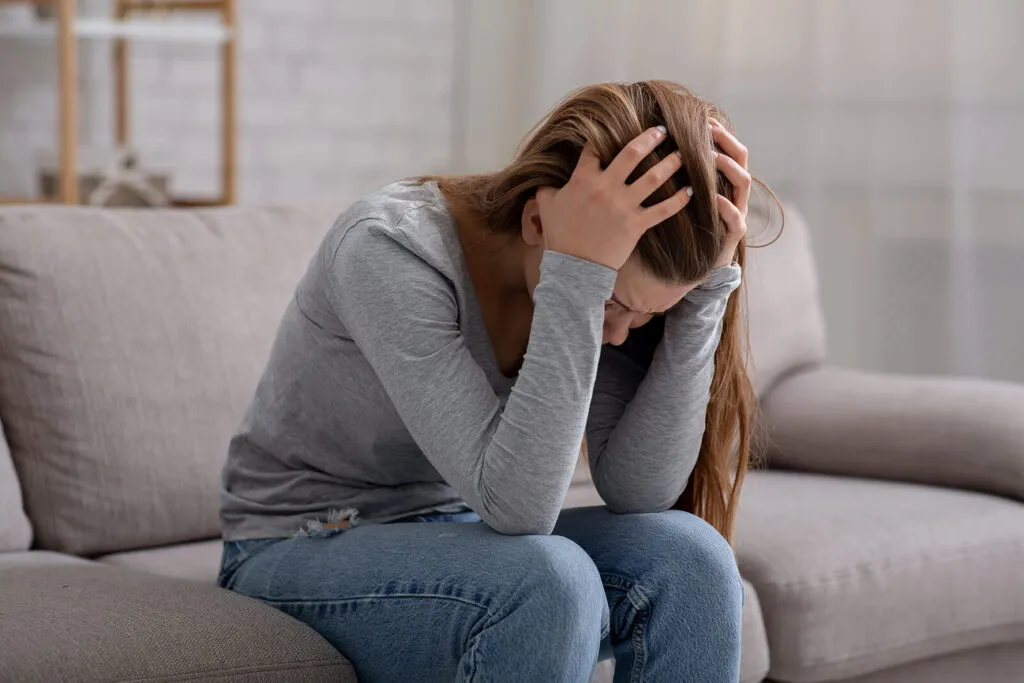Do I Have PTSD?
Recognizing the
Signs
Apr 26, 2019 | By: Hope for the Journey

***Trigger Warning*** Please be aware that the following content may cause strong emotional reactions in some people, particularly if you are actively struggling with PTSD. If you notice this, please refrain from reading and contact a licensed clinician for help. Please also be aware that these reactions can sometimes be delayed.
The #MeToo movement highlighted the fact that all too many Americans have felt the impact of sexual aggression. During that time, you might have heard talk about Post-traumatic Stress Disorder, or PTSD. Traditionally, people think of PTSD in the context of veterans or victims of mass violence. In fact, PTSD is a psychiatric disorder that can develop in people who’ve experienced or witnessed all kinds of traumatic, life-threatening, or “damaging to your sense of self” events.

What causes PTSD?
Lots of people think they can’t possibly have PTSD because they know other people have had it so much worse. The mistake here is thinking that only the worst of the worst events can be experienced as traumatic. In fact, PTSD is often a result of what sometimes is considered smaller “T’s” like the loss of a loved one, neglect as a child, or being friendless. In fact, the traumatic event doesn’t even have to have happened to you. Just hearing about a traumatic event can cause symptoms of PTSD. Therefore, even family members and treatment providers of someone who has experienced a trauma may be at risk.
If you’re concerned you or a loved one may be suffering from PTSD, here are some signs to look out for:
Reliving the Event
Someone with PTSD will often have involuntary re-experiences of the trauma through nightmares, flashbacks, “triggers”, and unwanted thoughts or memories. Sounds, smells, or other sensations may take them back to the traumatic experience. When this happens it will feel almost like you’re actually back at the time when the bad thing happened.
Occasionally, you may actually think you ARE back in the memory. Additionally, they may feel strong feelings in their bodies when they’re reminded of or remember the event. An example of this is when a police officer hears a car backfire and immediately ducks and takes out his/her weapon thinking they are being fired upon.
Symptoms of Arousal and Reactivity
PTSD sufferers will frequently feel on edge, unsafe, or easily startled. They may be prone to anger, agitation, or sadness. It’s also common for victims of PTSD to have trouble sleeping or concentrating, and they may develop changes in their eating habits by either eating too much or too little.
If you’ve suffered from ongoing hypervigilance, you might notice that you tend to scope out a room upon entering. You sit with your back always against a wall, and you make sure you have access to the doorway. You expect danger or bad things to happen. You’re often on alert even in safe, familiar places which makes it difficult to slow down and relax.

Avoidance Behavior
If you have PTSD, you may also find yourself avoiding the place where you experienced the event. Or, areas that remind them of what happened. They may also avoid people, events, or objects that bring negative memories forward. It’s also common for people with PTSD to avoid talking about the situation, or avoiding feelings related to the event.
This can lead to feeling numb or periods of dissociation (being disconnected or even unaware of some part of yourself, your feelings, your behavior, or your body sensations). Things like alcohol or drug abuse, other addictive behaviors, and over (or under) eating might also accompany this avoidance.
Negative Thoughts and Feelings
Feelings of shame, self-blame, and exaggerated negative beliefs are common in people with PTSD. They may lose interest in things they once enjoyed, and isolate themselves from friends and loved ones. It’s also not uncommon for people with PTSD to entirely lose trust in people, or to believe that the world is a dangerous place.
After experiencing a traumatic event, it’s natural for someone to have any of the symptoms listed above. However, for people suffering from PTSD, the symptoms persist for weeks, months, or even longer and begin to affect their ability to function. Sometimes, people feel fine for long periods of time after trauma, then suddenly start having PTSD symptoms. This can even happen years after the trauma and can seem unrelated.
If you’re worried you might be suffering from Post-traumatic Stress Disorder and need the help of a licensed professional, please call our office today, and let’s set up an appointment to talk. Our therapists specialize in healing PTSD after sexual trauma. You don’t have to feel broken forever.

Begin Online Trauma Therapy in Texas
You don’t have to struggle with the signs of PTSD alone. Our team of caring therapists understands how difficult can be to cope with trauma. This is why we would be honored to support you in addressing these symptoms and better understanding your PTSD. To start your therapy journey with Hope For The Journey, please follow these simple steps:
Other Services Offered At Hope For The Journey
Our team understands you may face more than one mental health concern. This is why we are happy to offer support with a variety of services in support of your mental health. We are happy to also offer therapy for anxiety and depression, domestic violence, sexual assault, and EMDR. Our team also provides support for family members of all ages with counseling for teens and young adults, children and tweens, couples, men, and parents/partners. Contact us today to learn more about our team and community involvement!
